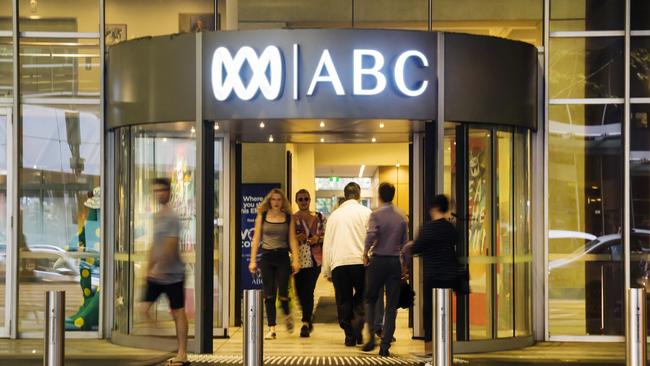ABC news should stand on its own, says Richard Alston
Former communications minister believes ABC news division should be separated from all other programming.

Former communications minister Richard Alston has advocated the structural separation of the ABC between the news division and all other programming to better understand the public appeal of the broadcaster.
Writing in his memoir, with extracts in The Weekend Australian today, the communications minister between 1996 and 2003 has also advocated public funding for news as well as cultural content be sent out to tender, as well as a BBC-style relocation of staff away from Sydney.
READ MORE: Inquirer: One-eyed Aunty loses sight of the bigger picture
In a revealing insight into his time dealing with media companies, the Howard government veteran says dealing with the ABC was far more difficult than with media proprietors Rupert Murdoch, Kerry Packer and Kerry Stokes.
“The reality is that, although they were all tough negotiators who argued their cases forcefully, they (nearly) always treated us with respect and never tried to cut side deals. They certainly didn’t leak against us or employ bullying tactics through the media,’’ he writes.
“My biggest hurdle, without doubt, was dealing with an organisation (ABC) which considered itself unique and almost a law unto itself, which did not hesitate to leak and intimidate to advance its cause.
“Without such a no-holds-barred, adversarial relationship with the government and a highly protective corporate culture, they would have achieved a lot more.”
Mr Alston has argued a “structural separation” between news and current affairs and other programming would force the ABC to reveal how popular programming actually is to viewers.
“One way of determining popular support for the quality of its news and current affairs offerings would be to structurally separate them from its other activities. Although the ABC is wholly funded by government, it resolutely refuses to make public its own ratings surveys, which cannot be commercial-in-confidence,’’ he says.
“No doubt the ABC’s general offerings, which are not overtly political, would be viewed in a very different light by the public — and the ABC should not be afraid of such an outcome. Surely the public is entitled to express its approval or otherwise of the programs put before them.”
While the former minister says the “privatisation of ABC is not a serious option”, and a merger with SBS risks a “dumbed down” news service for the junior partner that he regards as a “much better news service”, he does advocate more competition for public funding among media organisations.
“Set aside additional contestable funds for quality broadcasting for which the ABC, and other media organisations, could compete for funding for certain types of program streams, as has occurred in the UK. For example, the government could make funds available for coverage of Australian history documentaries. The same might go for investigative journalism,’’ he says.
Mr Alston also claimed the ABC would benefit from moving large amounts of staff out of Sydney to stop the “Sydney-centric bias and the narrow urbanist world view it produces”, similar to the decision by the BBC to move staff to Manchester.
He also advocates an inquiry “to decide what the ABC’s role should be and what it should offer its viewers and listeners”.




To join the conversation, please log in. Don't have an account? Register
Join the conversation, you are commenting as Logout